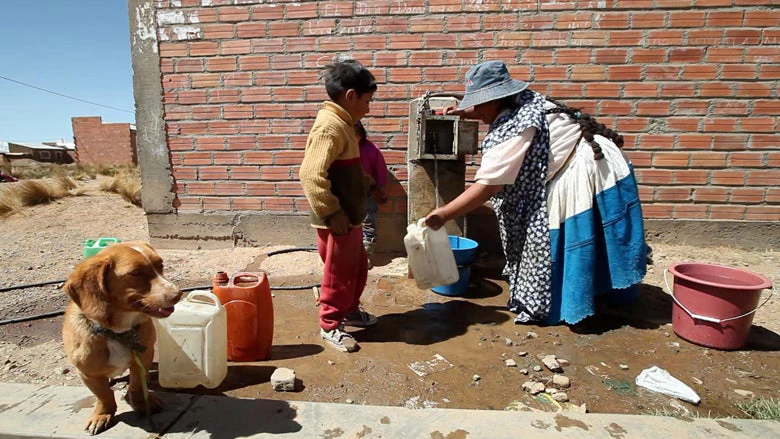Also available in: Français

el Alto, Bolivia.
Photo credit: Stephan Bachenheimer / World Bank
Small towns* typically have not been well served by national or regional water utilities. Decentralization has become increasingly widely adopted, but even if local governments at the small town level have the power to operate a water utility, they often lack the capital and skills to do so. In response, some local governments and public institutions concentrate improvements on upgrading public utilities’ operations or strengthening community based management. In other cases, they choose to bring in the private sector knowledge of how to get clean water and sanitation services to more people more efficiently, affordably or sustainably. There is no one solution to addressing often very complex water and sanitation challenges.
There are many ways in which the public sector can leverage its own resources through partnering with the private sector. For the domestic private sector to fully realize its potential at scale in the small town sub-sector, we found they need capable and enabled public institutions to structure the market and regulate private operators.
Lessons learned from case study countries (Colombia, Bangladesh, Philippines, Uganda, Cambodia, Niger and Senegal) in a new global study published by the Water Global Practice’s Water and Sanitation Program suggest the following three key ways to support public institutions in order to build a conducive business climate for market players in small towns Water Supply and Sanitation (WSS) service delivery:
- Increase citizen engagement: Involving civil society and other stakeholders in a well-designed and properly resourced dialogue process is crucial to address concerns and raise awareness about private sector participation issues. In Bangladesh, inadequate attention to this issue was found to be detrimental to efforts to improve water services. In contrast, the Government of the Philippines has created a Public-Private Partnership (PPP) Center, which acts as a knowledge centre of PPPs. The PPP Center provides various capacity building programs for local government institutions in terms of understanding the concept of PPPs, how to structure, develop and prepare PPP projects, and how to implement and monitor PPP projects.
- Encourage market development: Opening markets means that national governments delegate responsibility to provide public service provision to local governments who in turn seek support from the private sector to complement their own skills. In Senegal, the government structured the market by creating a national WSS rural asset holding company, or OFOR. OFOR clustered the 1,500 rural piped schemes of the country into five service areas that are then tendered out to private operators. Since 2015, SEOH (a private operator) is providing safe drinking water to 400,000 people in the areas of Notto Diosmone Palmarin and Gorom Lampsar.
- Mobilize domestic financing: Develop action plans aimed at the local financial institutions to help them understand the WSS business and offer financial products suitable for the WSS sector. In Benin, local commercial banks have committed to support the water sector by providing debt, equity, and various financing instruments to the private operators in small towns to build new water connections. In the Philippines, the most common and preferred type of partnering is Joint Ventures, for which private operators bring private equities and loans.
For more lessons learned on public institutions and PPPs for sustainable WSS services in small towns, read the full study: Private Sector Provision of Water Supply and Sanitation Services in Rural Areas and Small Towns: The Role of the Public Sector.
*Small towns usually have populations between 5,000 and 50,000 inhabitants.,


Join the Conversation